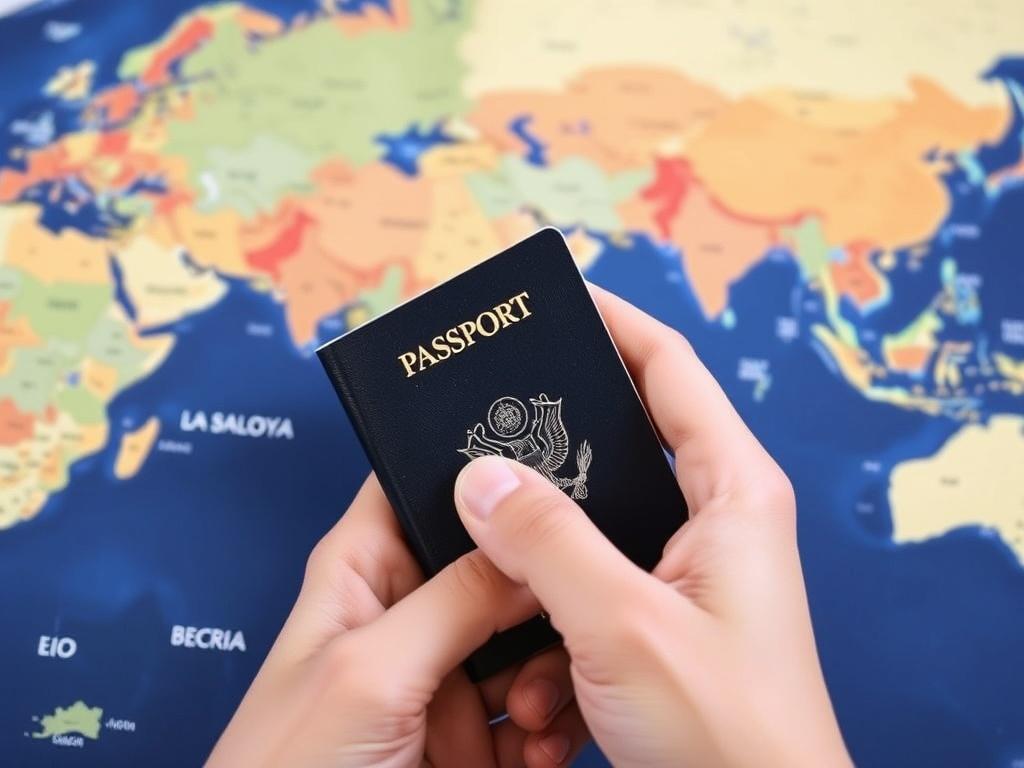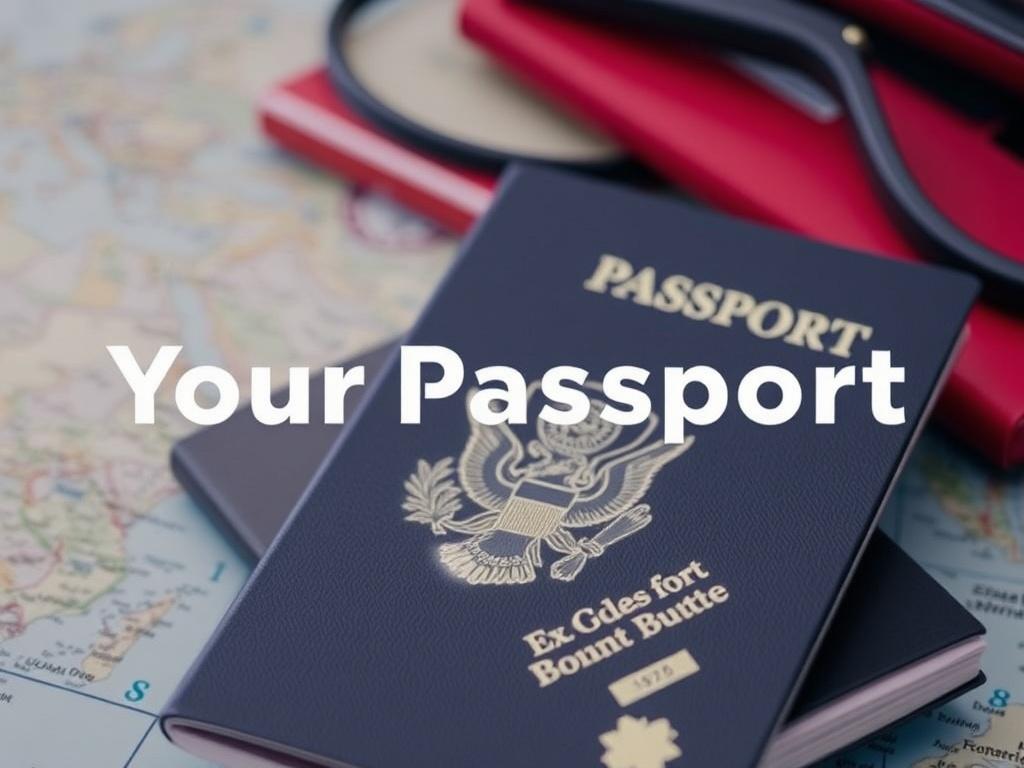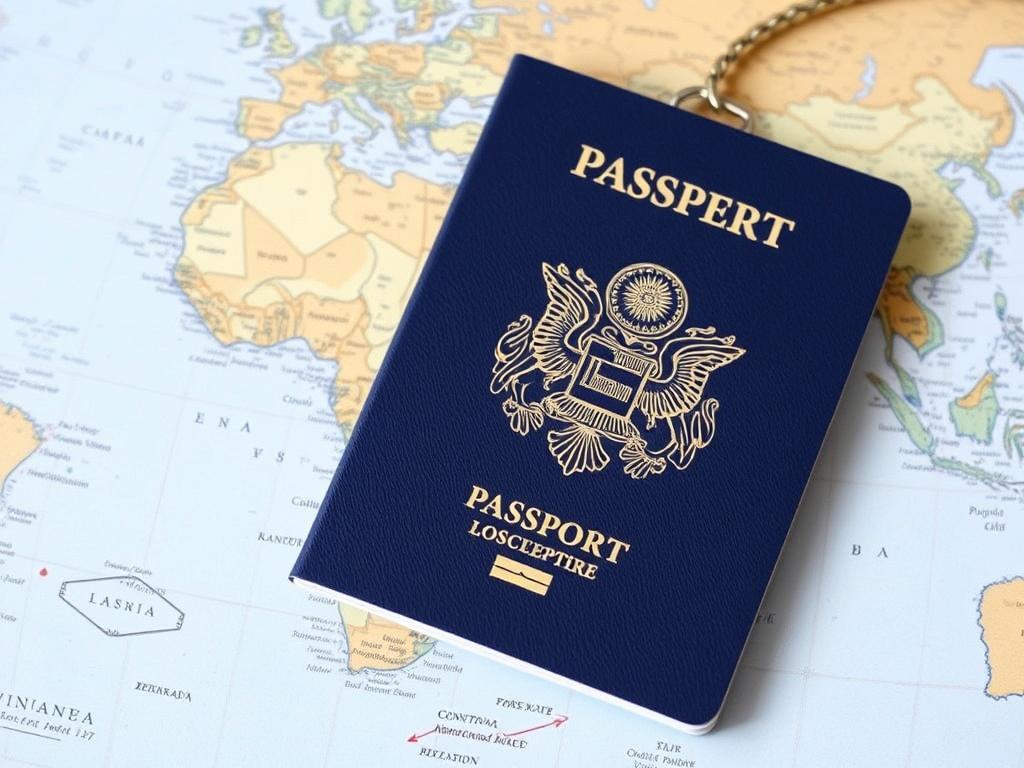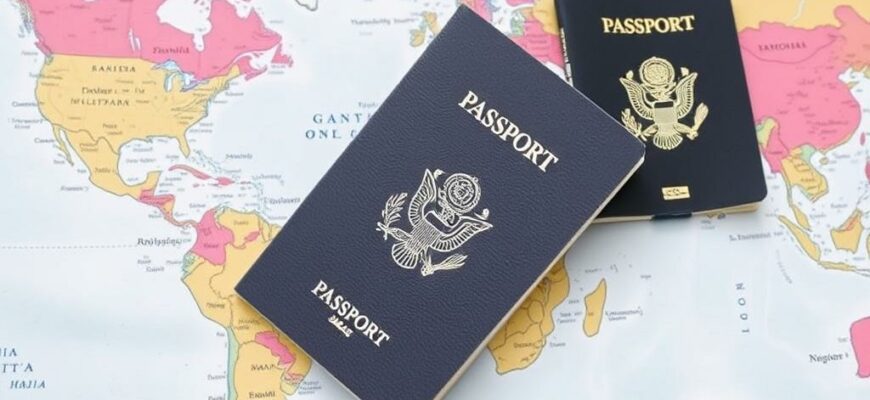Traveling abroad comes with its own set of thrills and challenges. Among the unexpected hurdles travelers might face, losing a passport is perhaps the most dreaded. Imagine this: you’re halfway through your dream vacation or a crucial business trip, only to realize your passport—the key document that allows you to cross borders—is missing. Panic can set in quickly, but the good news is that with the right steps and knowledge, you can navigate this stressful situation smoothly. In this article, we’ll guide you through exactly what to do when you lose your passport abroad, so you can turn a potentially devastating setback into a manageable hiccup.
Stay Calm and Assess the Situation
First things first: don’t panic. Losing your passport abroad can feel like a nightmare, but it’s a common issue for many travelers, and there are established procedures to help you recover or replace it. The moment you realize your passport is missing, take a deep breath and try to remember the last time and place you had it. Think back: did you leave it at a hotel, a restaurant, or a taxi? Retracing your steps methodically might save you some trouble. Sometimes, lost passports aren’t stolen but simply misplaced. If you’ve lost your passport abroad, the emotional response is just as important as the practical one—keeping calm helps you think clearly and act wisely.
Immediate Actions to Take When You Lose Your Passport Abroad
Report the Loss to Local Authorities
One of the very first tasks to handle after you lose your passport abroad is to report the loss or theft to the local police or relevant authority. Filing a police report might seem like extra paperwork, but it’s crucial. This report will serve multiple purposes: it protects you from potential misuse of your passport, provides proof of the loss when applying for a replacement, and is often required by your embassy or consulate. When making the report, provide as much detail as you can about when and where you last had your passport.
Contact Your Country’s Embassy or Consulate
After notifying the police, your next step is to get in touch with your country’s embassy or consulate. Every country has offices abroad specifically to assist its citizens with issues like misplaced passports. Embassies and consulates can issue emergency travel documents or replacement passports that enable you to continue your journey or return home. It’s wise to locate and save the contact information of your embassy even before traveling abroad, because when passport loss happens, having these contacts readily available saves precious time.
Gather Necessary Documentation for Emergency ID
When requesting a replacement passport abroad, the embassy or consulate will require proof of identity. If you have a scanned copy of your lost passport saved on your email or cloud storage, that could be immensely helpful. Other documents like a driver’s license, a birth certificate, or photocopies of your passport (which many travelers keep separately for situations like this) will assist the process. If you don’t have any backup IDs, embassy officials will guide you through alternative verification methods, but having documentation ready upfront can speed things up significantly.
How to Prepare Before You Travel to Avoid Passport Problems

The old saying “prevention is better than cure” holds true for traveling with your passport. Before you embark on your next international adventure, there are smart steps you can take to make sure losing your passport doesn’t completely derail your trip.
Make Multiple Copies of Your Passport
One of the simplest yet most effective tips is to keep several photocopies of your passport, including the passport photo page and the visa pages if applicable. Carry one copy separately from the original, leave another with a trusted friend or family member at home, and save a digital scan in your email or cloud storage. These copies won’t replace your original passport but will be incredibly useful for identification purposes and the replacement process if you lose your passport abroad.
Register with Your Embassy
Many embassies offer a traveler registration program where you enroll your trip details with them. This registration allows embassy staff to contact you in case of emergencies and provides easier access to consular services like passport replacement. It also helps them keep citizens informed about any travel advisories or changes in the country you’re visiting.
Use a Travel Wallet or Hidden Pocket
To reduce the chances of losing your passport abroad, consider using a travel wallet or money belt that can be worn under your clothes. These accessories keep your passport safe and discrete, minimizing the risk of theft or accidental misplacement.
Understanding Emergency Travel Documents vs. Replacement Passports
When you report a lost passport abroad, the embassy might provide you with emergency travel documents—what’s the difference between these and a full replacement passport?
Emergency travel documents are temporary papers that allow limited travel, usually to facilitate your return home or travel to a specific destination where you can obtain a full replacement. These documents are quicker to get but are typically valid for a short period and come with travel restrictions.
Replacement passports, on the other hand, are official, full-validity passports issued to replace the lost or stolen original. Acquiring one might take several days or even weeks, depending on the circumstances and the embassy’s processing speed. Knowing the distinction helps you understand what to expect and plan accordingly.
Comparison Table: Emergency Travel Documents vs. Replacement Passports
| Feature | Emergency Travel Document (ETD) | Replacement Passport |
|---|---|---|
| Validity | Short-term, usually days to weeks | Full validity, typically 5-10 years |
| Issuance Time | Usually within 24-48 hours | Several days to a few weeks |
| Usage | Limited travel, mainly return or transit | All international travel |
| Cost | May be lower or waived in emergencies | Standard passport fees apply |
| Application Process | Simpler, fewer requirements | More documentation and processing needed |
How Long Does It Take to Get a Replacement Passport Abroad?
One of the most pressing questions when you lose your passport abroad is, “How long does it take to get a replacement?” Unfortunately, the timeframe varies widely depending on several factors: your nationality, the country you’re in, the time of year, and the embassy or consulate’s resources. Typically, emergency travel documents can be issued within a day or two, while full replacement passports might take anywhere from one week to a month.
If your travel plans are tight, explain your situation clearly to embassy officials—they may be able to expedite the process or provide helpful alternatives. Always build some buffer time into your itinerary to accommodate passport replacement procedures when traveling.
What to Do If Your Lost Passport Was Stolen Abroad

There’s a difference between losing your passport and having it stolen abroad, though the response overlaps significantly. If you suspect theft, it’s critical to report it to the police immediately and emphasize that your passport was stolen. This report helps prevent identity theft or misuse of your personal information.
Consider also checking your bank cards and other belongings to ensure no additional items were stolen. Stay alert to any suspicious activities with your identity or bank accounts after the theft and notify your embassy of the situation. The embassy can provide advice and assistance aimed at protecting you from further harm.
Tips for Handling Delays and Unexpected Problems
Losing a passport can cause delays, missed flights, or missed appointments. Here are some practical tips to stay on top of the situation and reduce stress:
- Inform your airline or travel provider: Let them know about your passport situation, especially if you need to reschedule flights.
- Keep digital copies of key documents: Scans of your police report, emergency travel document, and communication with your embassy can be lifesavers.
- Maintain open communication: Regularly follow up with embassy officials and keep friends or family updated on your status.
- Be prepared to adapt your itinerary: Sometimes, plans need to change. Flexibility can help reduce frustration.
- Carry cash or alternate payment methods: If your wallet was stolen along with your passport, having cash or other backups helps you navigate until you get replacements.
How to Avoid Losing Your Passport Abroad in the Future
While it’s impossible to guarantee you won’t lose your passport, adopting good habits greatly reduces the risk:
- Always store your passport in a secure place: Use hotel safes when available or carry it on your person in a hidden travel wallet.
- Limit how often you take it out: Only bring your passport when strictly necessary, such as when passing through immigration or checking into hotels.
- Use technology: Apps that securely store scans of your documents can be handy in emergencies.
- Stay vigilant in crowded places: Pickpockets are common in tourist hotspots. Watch your belongings closely.
- Have backups ready: Remember multiple copies of your passport and registration with your embassy.
Frequently Asked Questions About Losing a Passport Abroad

Can I Travel Without My Original Passport if I Lose It Abroad?
Generally, you cannot travel internationally without a valid passport or an acceptable travel document. Some countries accept emergency travel documents, but it’s essential to check with your airline and the destination country’s entry requirements.
Will I Need to Pay Extra Fees to Replace My Lost Passport?
Yes, replacing your passport abroad usually involves fees for emergency travel documents or a replacement passport. The exact cost varies by country and urgency.
What if My Lost Passport Has a Visa for Another Country?
Losing a passport with a valid visa is challenging. You will usually need to apply for a new visa once you have your replacement passport, as visas are generally not transferable. Contact the consulate of the visa-issuing country for guidance.
Can Someone Else Pick Up My Replacement Passport?
Policies vary by embassy or consulate. Some allow authorized representatives to collect passports on your behalf if they have proper identification and authorization documents.
Summary Table: Checklist for What to Do When You Lose Your Passport Abroad
| Step | Action | Notes |
|---|---|---|
| 1 | Stay calm and retrace your steps | Try to locate your passport before reporting loss |
| 2 | Report loss/theft to local police | Obtain a police report for embassy use |
| 3 | Contact your embassy or consulate | Request emergency travel document or replacement passport |
| 4 | Provide required identification and documents | Use copies or other forms of ID if original is lost |
| 5 | Follow embassy instructions and timelines | Be prepared for possible delays |
| 6 | Adjust travel plans if necessary | Notify airlines and accommodation providers |
| 7 | Keep copies and communication records safe | Useful for proof and follow-up |
Conclusion
Losing your passport abroad doesn’t have to spell disaster. While it’s a stressful and inconvenient experience, knowing what to do when you lose your passport abroad empowers you to handle the situation with confidence and poise. By staying calm, reporting the loss promptly, involving your local authorities and your embassy, and being prepared with the right documentation and backups, you can minimize disruptions to your travel plans. Remember, embassies and consulates exist precisely to help citizens navigate these challenges, so don’t hesitate to reach out for assistance. And of course, preparing thoughtfully before your trip—keeping copies of your documents, registering with your embassy, and securing your passport carefully—goes a long way in preventing or mitigating the fallout if the unexpected happens. Traveling is about experiencing the world, and even if a lost passport momentarily interrupts your journey, it’s just one chapter in your adventure, not the end of it.









